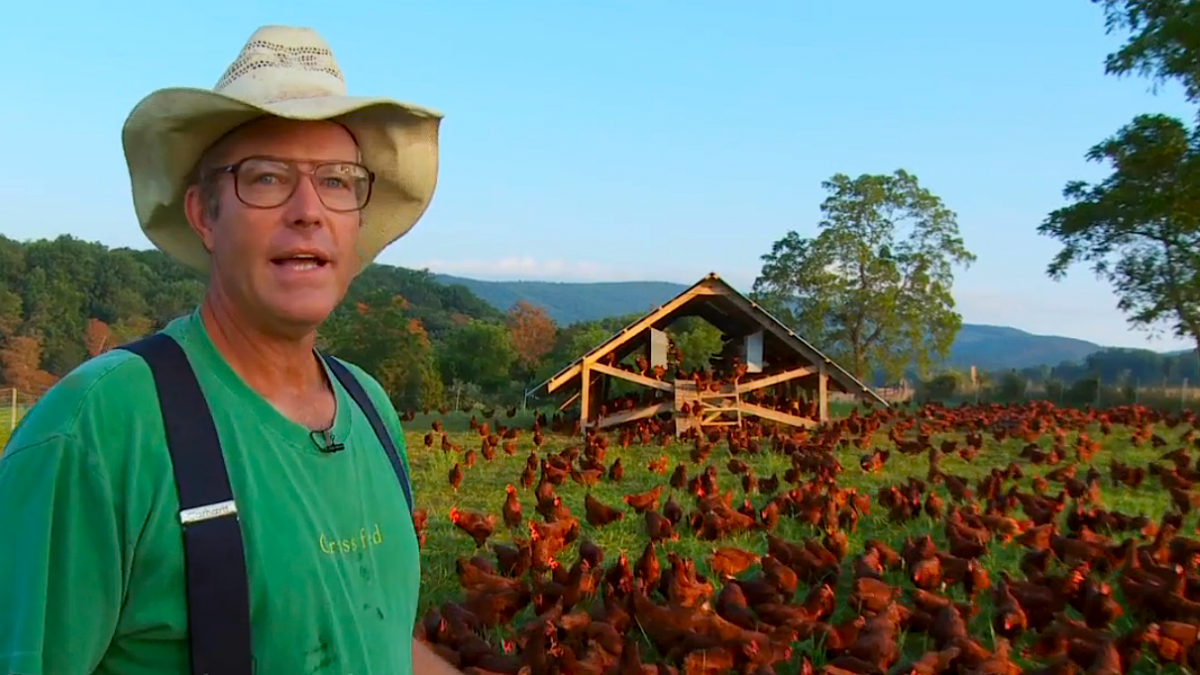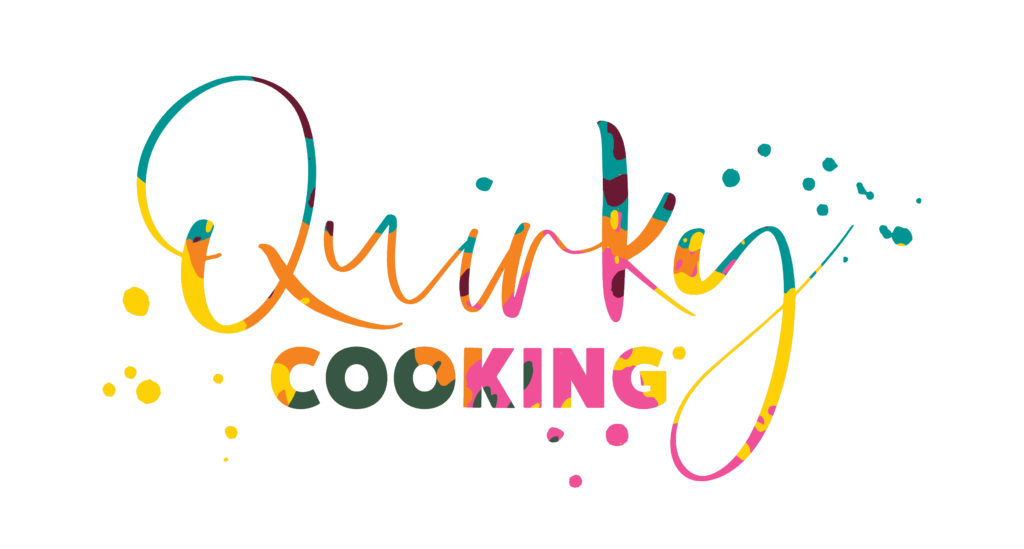No products in the cart.
Health, Healthy Living, Podcast, Wholefood
Joel Salatin: Regenerative Wisdom from the World’s Most Famous Farmer
Posted on by QuirkyJo

Podcast Highlight: episode #94 of A Quirky Journey podcast!
Listen in on my podcast channel, A Quirky Journey.
Who is Joel Salatin? (from www.polyfacefarms.com):
Joel Salatin calls himself a “Christian libertarian environmentalist capitalist lunatic farmer”. Others who like him call him the most famous farmer in the world, the high priest of the pasture, and the most eclectic thinker from Virginia since Thomas Jefferson. Those who don’t like him call him a bio-terrorist, Typhoid Mary, charlatan, and starvation advocate.
With a room full of debate trophies from high school and college days, fourteen published books, and a thriving multi-generational family farm, he draws on a lifetime of food, farming and fantasy to entertain and inspire audiences around the world. He’s as comfortable moving cows in a pasture as addressing CEOs in a Wall Street business conference.
His wide-ranging topics include nitty-gritty how-to for profitable regenerative farming as well as cultural philosophy like orthodoxy vs. heresy. A wordsmith and master communicator, he moves audiences from laughs one minute to tears the next, from frustration to hopefulness. Often receiving standing ovations, he prefers the word performance rather than presentation to describe his lectures. His favourite activity? – Q&A. “I love the interaction,” he says.
He co-owns, with his family, Polyface Farms in Swoope, Virginia. Featured in the New York Times bestseller Omnivore’s Dilemma and award-winning documentary Food Inc., the farm services more than 5,000 families, 50 restaurants, 10 retail outlets, and a farmers’ market with salad bar beef, pigaerator pork, pastured poultry, and forestry products. When he’s not on the road speaking, he’s at home on the farm, keeping the callouses on his hands and dirt under his fingernails, mentoring young people, inspiring visitors, and promoting local, regenerative food and farming systems.
Salatin writes The Pastoralist column for Stockman Grass Farmer, granddaddy catalyst for the grass farming movement, and the Pitchfork Pulpit column for Mother Earth News, as well as numerous guest articles for ACRES USA and other publications. A frequent guest on radio programs and podcasts targeting preppers, homesteaders, and foodies, Salatin’s practical, can-do solutions tied to passionate soliloquies for sustainability offer everyone food for thought and plans for action.
Mixing mischievous humor with hard-hitting information, Salatin both entertains and moves people. Seldom using a power-point and often speaking from an outline scribbled in a yellow legal pad, he depends on theatrics, style, and compelling content to hold attention and defend innovative positions. The rare combination of prophet and practitioner makes him both a must-read and must-hear in a time desperate for integrity leadership and example.
Episode Description:
Joel is a personal hero of ours – he is a deeply intellectual, thoughtful, caring human being, and a beacon for light and sanity in this world that we are all trying to help heal. Joel is featured in Michael Pollan’s best-selling book, The Omnivore’s dilemma, where Pollan proposes Polyface Farms as the model farm for the future. Joel is considered a revolutionary in the agricultural world as he brings attention to the ability of animals to regenerate damaged land. Joel’s focus is on using nature to heal nature, and his farming practices produce large yields of food, which yes, surprisingly, has a net positive gain for the ecology. This completely obliterates the commonly held view that farming and in particular animal farming is damaging for the environment. Joel is the author of 13 books including “Folks, This Ain’t Normal”.
Noteworthy Quotes from Joel:
On the aliveness of soil and grazing animals:
“The grazing animals actually secrete saliva, that acts as a stimulant to the grass as an emollient (has the quality of softening or soothing). That’s why grazed grass always responds and grows back much quicker than mowed grass. Because the mowed grass doesn’t have all these microbial fibres that are coming out of the pruning animal. The problem is, if you don’t prune the biomass… Think about it like an orchard or vineyard. If a viticulturist or orchardist did not prune the apple trees or the grapevines, we would consider that orchadist or viticulturist negligent. Maybe we would consider him or her, not a good steward of their plants. And the same thing is true with the grasses. They go through the same cycle as the orchard trees or the vineyard. The pruning restarts their rapid growth.”
“What we want is to maintain the biomass at that rapid teenage growing stage as much as possible, and that is why the planet is full of herbivores… From elephants, to zebras, to reindeer, to moose, to kangaroo, to alpacas and llamas. If you look around the planet… why do we have all these herbivores? They are the pruners of this biomass, that keep this vegetative, photosynthetic cycle going to convert all of this solar energy into decomposable biomass.”
On uniting in our efforts to eat ethically:
“The vegan/vegetarian movement does have a moral dimension. But generally, the moral dimension is a backlash against the kind of systems that we do to raise the mass of livestock. We are so disrespectful. We are not asking, how to make a happy pig. We’re simply viewing the pig as an inanimate pile of proto-plasmic structure to be manipulated, however cleverly the human mind can imagine to manipulate it. That’s a very disrespectful, dishonouring way to view life. So the backlash… that pendulum has swung towards CAFO (Concentrated Animal Feeding Operations – Factory Farms) and the mechanical view of life. We have this backlash of, ‘I’m not going to eat any meat at all. We shouldn’t eat any animals. And the way they’re raised, we’re harming the planet.’ I agree with all of that. But the answer is not to extricate animals from your life or meat from your diet. The answer is to find the animal…. the meat, the plants, the chicken or whatever.. to find whatever is ecologically enhancing. That’s the one to find. The move towards an animal-less diet, an animal-less system, does not indicate a new evolution into some new awareness or nirvana or new reality. It actually indicates a de-volution into a profound disconnection with the cycles of life.”
“But I’m not a farmer – how can I make a difference as an individual?”
Joel says:
- Get in your kitchen! Enjoy the culinary arts!… Integrity in a food system ultimately means integrity in a farming system – a farming system is completely tied to the food system. Change the food system, you change the farming system. So, you cannot have integrity in the food system when you have such a profound abdication of visceral participation in the system! So the way back starts with finding your way into the kitchen again, and beginning working with food – smelling food, touching food, developing mastery and skill in handling food. And yes, it might mean you have to not do something else – take the kids three hours to a soccer tournament or something – but at the end of the day, if we don’t return to home-centricity in our food system, we will not have any integrity all the way down to the farm.
- Do something yourself to participate in this biological womb we live in. Whether it’s a honeybee hive on a roof, a hanging herb garden on a patio… the edible, urban landscape garden is the infrastructure for this stuff. We’ve got PVC tubes with pockets in them, you pack it full of compost, drip some water in and you can grow all your herbs in a little hanging tube on the edge of your porch. Do something! Even if it’s just an earthworm bed kit under your kitchen sink… the marvel of turning your kitchen scraps into earthworm castings and watching the red wrigglers and you can use them for your plants or whatever… Let yourself be touched with the mystery, the awesomeness, of this biological womb we live in.
- Find your food treasures in your community. It might be a farmer’s market, it might be a box scheme, a delivery service, it might be a farm stand… there are numerous ways, not just going down to Woolies or Coles. I always challenge people, whatever you’re spending on entertainment for the year, the time and money you would spend, take one year and invest that energy that you would normally invest in entertainment and invest that in your area, finding integrity sources of food, from farmers that are building soil, farmers that are honouring the pigness of the pig, and build your local food trust. Become a ‘food fossicker’ – find the food treasures in your area! We have so many options, where we are right now, whatever your food ‘issue’ (whatever farming issue you don’t like), it is a manifestation of the decisions, the values and the priorities that we’ve had for however many years leading up to today. What our landscape and food system or foodscape will look like for our grandchildren, will be again, a physical manifestation of the values, decisions, and priorities that we have between now and then.
The definition of insanity is doing the same thing and hoping for a different result! And so if we want a different result, we have to start doing something differently. These three actions steps, get in your kitchen, do something yourself, and find your local food treasures – these three things are actionable steps that anybody can do, you can start at zero and do one, don’t bite off more than you can chew, do it in little baby steps, and as you develop skills and start immersing yourself in a different trajectory, you will gradually begin to write a different story for our grandchildren, and isn’t that something worth doing!

